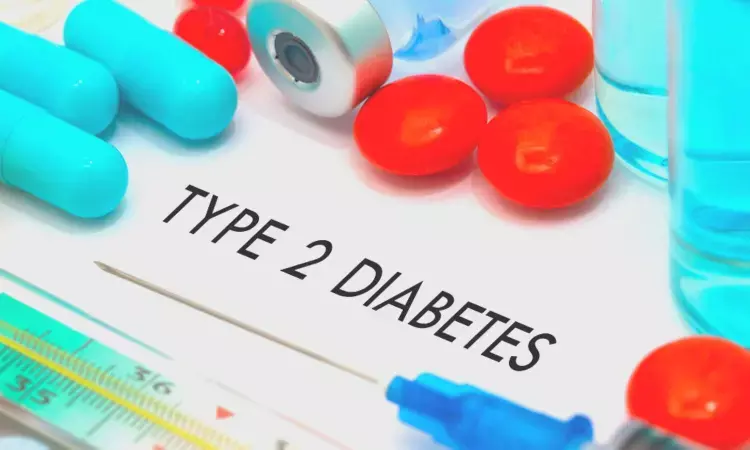- Home
- Medical news & Guidelines
- Anesthesiology
- Cardiology and CTVS
- Critical Care
- Dentistry
- Dermatology
- Diabetes and Endocrinology
- ENT
- Gastroenterology
- Medicine
- Nephrology
- Neurology
- Obstretics-Gynaecology
- Oncology
- Ophthalmology
- Orthopaedics
- Pediatrics-Neonatology
- Psychiatry
- Pulmonology
- Radiology
- Surgery
- Urology
- Laboratory Medicine
- Diet
- Nursing
- Paramedical
- Physiotherapy
- Health news
- Fact Check
- Bone Health Fact Check
- Brain Health Fact Check
- Cancer Related Fact Check
- Child Care Fact Check
- Dental and oral health fact check
- Diabetes and metabolic health fact check
- Diet and Nutrition Fact Check
- Eye and ENT Care Fact Check
- Fitness fact check
- Gut health fact check
- Heart health fact check
- Kidney health fact check
- Medical education fact check
- Men's health fact check
- Respiratory fact check
- Skin and hair care fact check
- Vaccine and Immunization fact check
- Women's health fact check
- AYUSH
- State News
- Andaman and Nicobar Islands
- Andhra Pradesh
- Arunachal Pradesh
- Assam
- Bihar
- Chandigarh
- Chattisgarh
- Dadra and Nagar Haveli
- Daman and Diu
- Delhi
- Goa
- Gujarat
- Haryana
- Himachal Pradesh
- Jammu & Kashmir
- Jharkhand
- Karnataka
- Kerala
- Ladakh
- Lakshadweep
- Madhya Pradesh
- Maharashtra
- Manipur
- Meghalaya
- Mizoram
- Nagaland
- Odisha
- Puducherry
- Punjab
- Rajasthan
- Sikkim
- Tamil Nadu
- Telangana
- Tripura
- Uttar Pradesh
- Uttrakhand
- West Bengal
- Medical Education
- Industry
Are GLP1-Agonists best out of new diabetes medications for primary CVD prevention?

USA: Among diabetes patients already on insulin, metformin, or sulfonylurea treatment and without cardiovascular disease, the addition of GLP-1 agonist was associated with primary reductions of MACE and heart failure hospitalization versus the use of DPP4 inhibitors, a recent study has shown. Adding SGLT2 inhibitors was not associated with primary MACE prevention compared with DPP-4 inhibitors.
The study was featured in the Annals of Internal Medicine on 9 May 2023.
More than 30 million adults in the United States have diabetes mellitus and it’s a condition that carries a high risk for cardiovascular disease (CVD). Previous trials have demonstrated benefits for using GLP1RA and SGLT2i to reduce MACE risk in persons with diabetes and preexisting CVD, but the use of these medications in preventing complications among persons with CVD remains unclear. people without preexisting cardiovascular disease (CVD), the effectiveness of sodium–glucose cotransporter-2 inhibitors (SGLT2i) and glucagon-like peptide-1 receptor agonists (GLP1RA) in preventing MACE (major adverse cardiac events) is uncertain. Considering this, Tadarro L. Richardson Jr., Vanderbilt University Medical Center, Nashville, Tennessee, and colleagues tested the hypothesis that MACE incidence was lower with the addition of GLP-1 agonists or SGLT2 inhibitors compared with dipeptidyl peptidase-4 inhibitors (DPP4i) for primary cardiovascular prevention in a retrospective cohort study of US veterans from 2001 to 2019.
The study involved veterans aged 18 years or older receiving VHA (Veterans Health Administration) care, with data linkage to Medicaid, Medicare, and the National Death Index. Veterans adding SGLT2 inhibitors, GLP-1 agonists, or DPP4 inhibitors onto sulfonylureas, metformin, or insulin treatment alone or in combination were included in the study.
Study outcomes included heart failure hospitalization and MACE (stroke, myocardial infarction, or cardiovascular death). The effects between medication groups were compared by Cox models using pairwise comparisons.
The study revealed the following findings:
- The cohort included 28 759 GLP1RA versus 28 628 DPP4i weighted pairs and 21 200 SGLT2i versus 21 170 DPP4i weighted pairs. The median age was 67 years, and the diabetes duration was 8.5 years.
- Glucagon-like peptide-1 receptor agonists were associated with lower MACE and HF versus DPP4i (adjusted hazard ratio [aHR], 0.82), yielding an adjusted risk difference (aRD) of 3.2 events per 1000 person-years.
- Sodium–glucose cotransporter-2 inhibitors were not associated with MACE and HF (aHR, 0.91; and, 1.28) compared with DPP4i.
The study authors wrote, "These findings are hypothesis-generating, and further evaluation of these medications as part of primary CVD prevention strategy is required."
"The observational study has serious limitations that should be considered in results interpretation and that preclude reliable application to clinical decision making," Steven Nissen, MD, of the Cleveland Clinic in Ohio, wrote in an accompanying editorial. "These drugs are long-term treatment, not short-term interventions, and comparing their effects over a few months is not clinically relevant."
"Randomized controlled trials have shown benefits for both drug classes in several trials studying mixed populations of primary and secondary prevention patients," Nissen added.
"Given these limitations, the observed differences in HRs (0.82 versus 0.91) comparing [GLP-1 agonists] and [SGLT-2 inhibitors] with [DPP-4 inhibitors] are too small to derive reliable conclusions," Nissen warned. "Caution and scepticism are appropriate when the effects are modest."
Reference:
The study titled "Primary Occurrence of Cardiovascular Events After Adding Sodium–Glucose Cotransporter-2 Inhibitors or Glucagon-like Peptide-1 Receptor Agonists Compared With Dipeptidyl Peptidase-4 Inhibitors: A Cohort Study in Veterans With Diabetes," was published in the Annals of Internal Medicine. https://www.acpjournals.org/doi/10.7326/M22-2751
Dr Kamal Kant Kohli-MBBS, DTCD- a chest specialist with more than 30 years of practice and a flair for writing clinical articles, Dr Kamal Kant Kohli joined Medical Dialogues as a Chief Editor of Medical News. Besides writing articles, as an editor, he proofreads and verifies all the medical content published on Medical Dialogues including those coming from journals, studies,medical conferences,guidelines etc. Email: drkohli@medicaldialogues.in. Contact no. 011-43720751


